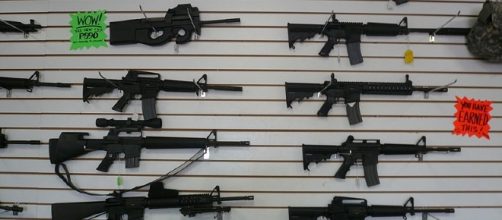Since 2007, Americans have witnessed the three deadliest Mass Shootings in US history -- Virginia Tech, Orlando, and the recent Las Vegas shooting. Concerts, movie theaters, elementary schools, and colleges have become battlegrounds. From these three tragedies alone, 140 people have died and hundreds have been injured.
According to Politico, mass shootings are not necessarily occurring more frequently but are more deadly. This decade's rate of mass shootings is similar to the late 1980s and early 1990s. Before 2012, the 5-year average rate never exceeded 20 people being shot (fatally or injured) in a mass shooting.
Recent mass shootings such as Sandy Hook exceeded that number, according to the article.
Would regulation work?
According to a 2012 Guardian article, the US has the highest ownership of guns in the world -- about 42 percent of Americans own one. However, the US only ranks 28 on the list of countries with the highest amount of firearm murders.
In 2004, a decade's long federal regulation against assault weapons ended. According to Politico, mass shootings became deadlier after this ban was lifted. However, studies show that this may not correlate to the ban being lifted. The article states that there is little research to conclude that banning or regulating certain weapons would diminish mass shooting rates.
FiveThirtyEight recently reported the success Great Britain and Austrailia had through firearm regulation in the 1990s. However, it may not be as successful in the US. Prior to the required buyback of firearms in Great Britain and Australia, they experienced almost zero mass shootings. Therefore, it is unclear if regulation would work in America considering its citizens own more firearms and have a higher rate of using them violently.
Background checks
According to the Brady Campaign, an organization committed to decreasing gun violence, experts estimate that 40 percent of firearm purchases occur without a background check. In 1993, the Brady Handgun Violence Prevention Act was enacted to ensure firearm purchasers would undergo a background check to distinguish if they had a criminal record or a history of mental illness.
A 2015 Tale of Two States report, an organization dedicated to reducing gun violence by promoting background checks, found that the 1994 Connecticut firearm licensing law reduced gun-related homicides by 40 percent within the first ten years of being enacted. Additionally, the report found in 2007 (when Missouri repealed a law requiring firearm licensing and background checks) found that gun-related homicides increased by 25 percent.


